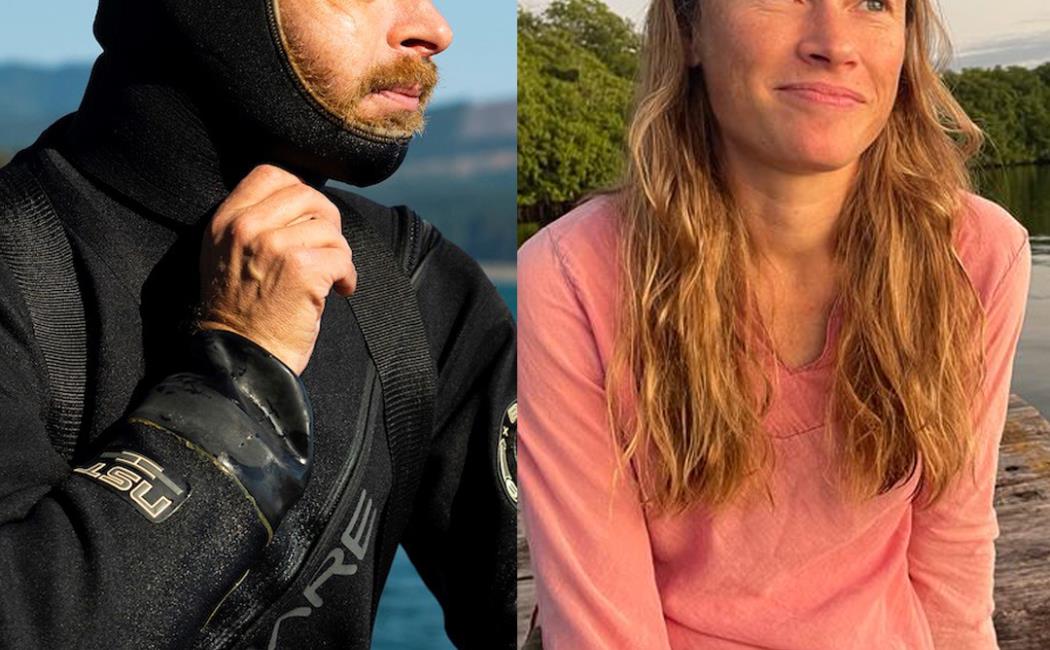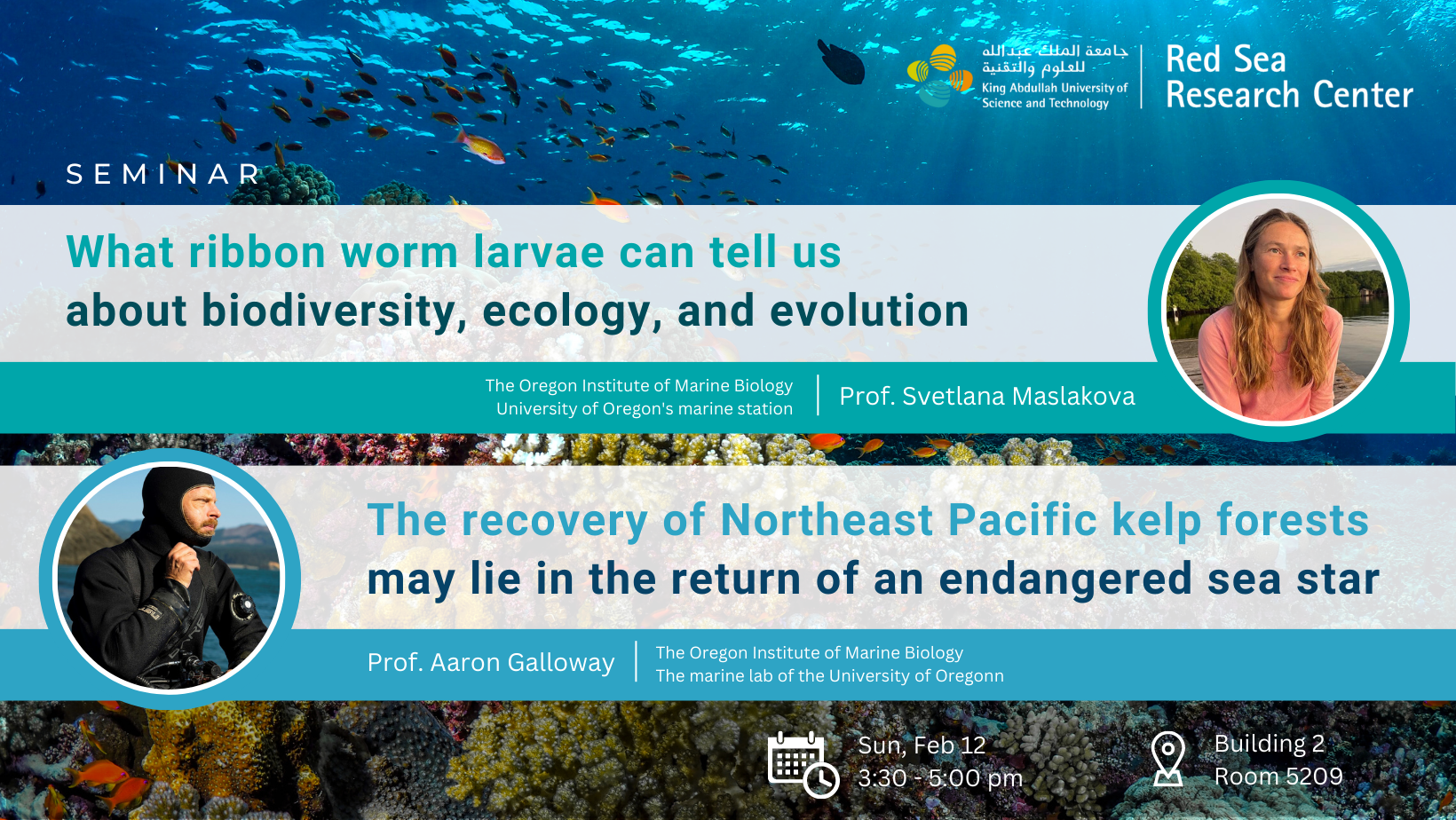



Zoom Webinar: https://kaust.zoom.us/j/96335122604
Abstract: Most species on Earth remain undiscovered and undescribed, especially in the marine environment, and it is a race against time to document biodiversity in the face of global change. Our recent work offers a way to expedite species discovery by sampling multiple life history stages. Many marine invertebrates have a biphasic life history with a macroscopic benthic adult and a microscopic planktonic larval stage. While most biodiversity surveys focus on the adults, we show that DNA barcoding larvae increases estimates of biodiversity by up to 60%. In addition to increasing estimates of taxonomic diversity, larval stages also contribute to our understanding of functional diversity and body plan evolution, as most larvae look nothing like their respective adults. In this talk I will also highlight our recent discovery of a previously unappreciated life-history strategy — planktonic carnivory — in one class of ribbon worms, and discuss its ecological implications.
Speaker name: Prof. Svetlana Maslakova
Speaker bio: Svetlana Maslakova is an Associate Professor at the Oregon Institute of Marine Biology — University of Oregon's marine station. Dr. Maslakova's research interests are in biodiversity, systematics, larval biology, evolution, and ecology. She is a world expert on systematics and larval development of one of the lesser known phyla of marine invertebrates, the ribbon worms (Nemertea). Nemerteans are ubiquitous in the marine environments, ecologically important as top predators, biomedically relevant as producers of diverse toxins, and some impact commercial fisheries. Maslakova lab is working to document nemertean diversity of the NE Pacific, Caribbean, and Arabia.
Seminar title: The recovery of Northeast Pacific kelp forests may lie in the return of an endangered sea star
Abstract: The recent collapse of predatory sunflower sea stars (Pycnopodia helianthoides) due to sea star wasting disease is hypothesized to have contributed to proliferation of sea urchin barrens and losses of kelp forests in the Northeast Pacific Ocean. We used choice and feeding rate experiments to test whether Pycnopodia may help recover kelp forests through their consumption of nutritionally-poor purple sea urchins (Strongylocentrotus purpuratus) typical of barrens. A population model based on the feeding trial parameters shows that local extirpation of Pycnopodia allowed for urchin proliferation, and even small sea star recoveries could generally lead to lower densities of sea urchins that are consistent with kelp coexistence. Unlike other important purple sea urchin predators, Pycnopodia seem unable to distinguish between fed and starved urchins. In this talk I will also highlight new research in our lab investigating the trophic ecology of wild Pycnopodia using fatty acids as trophic biomarkers. Our results highlight the potential for Pycnopodia to help regulate purple sea urchin populations in barrens, and therefore maintain healthy kelp forests through top-down control. The recovery of this important predator to pre- sea star wasting disease levels may therefore be key for kelp forest restoration at ecologically significant scales.
Speaker name: Prof. Aaron Galloway
Speaker bio: Aaron Galloway is an Associate Professor at the Oregon Institute of Marine Biology, the marine lab of the University of Oregon. Dr. Galloway leads the Coastal Trophic Ecology Lab (CTELab), which is generally focused on trophic inferences in marine benthic food webs, with an emphasis on algae-invertebrate interactions. To do this work, his group often uses fatty acids as trophic biomarkers, paired with underwater natural history, scuba diving, lab and field experimentation, and modeling.